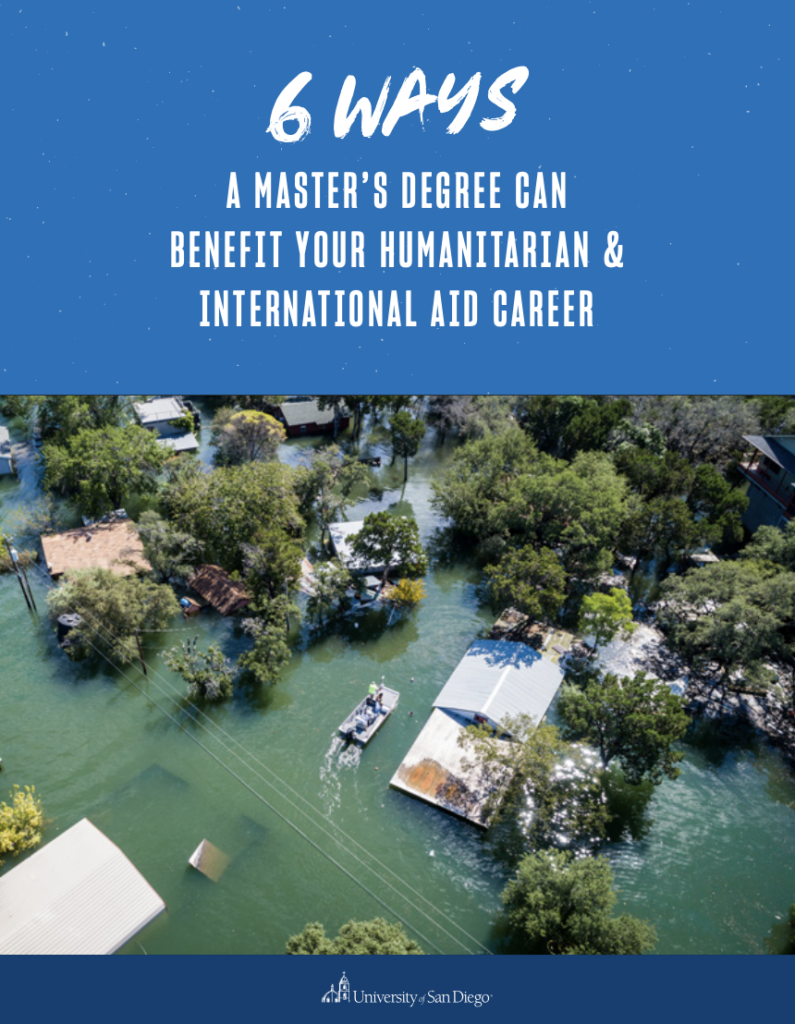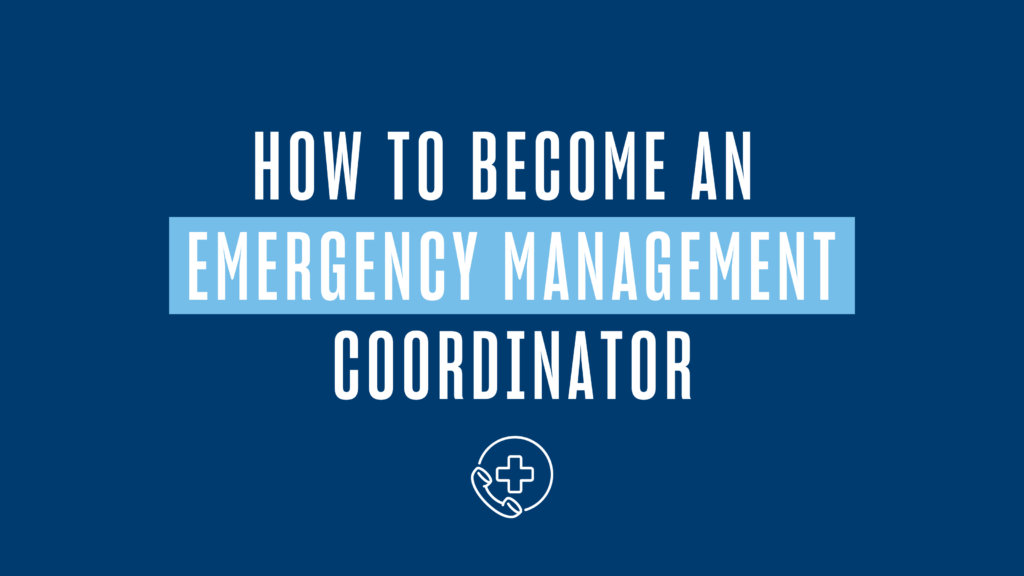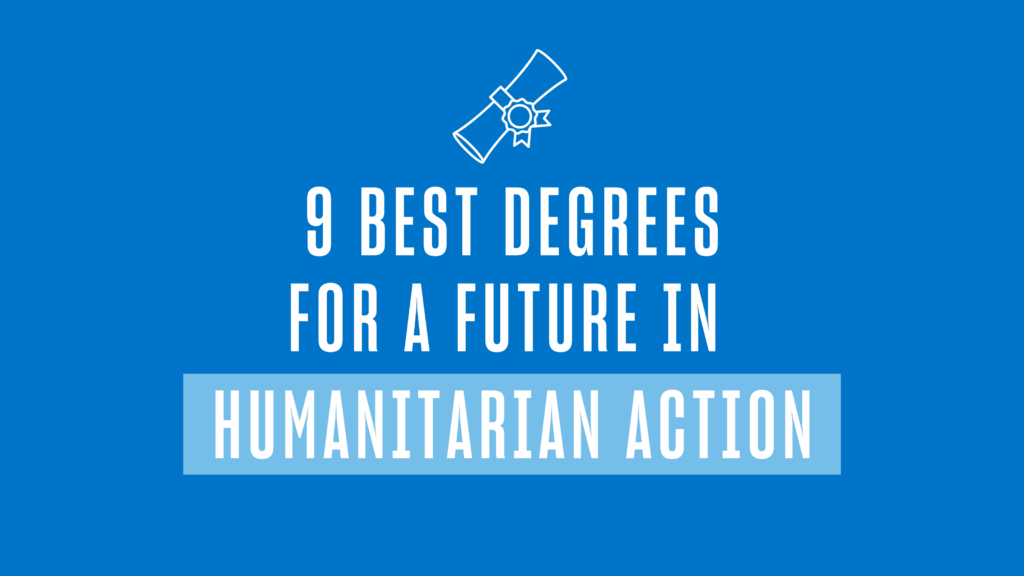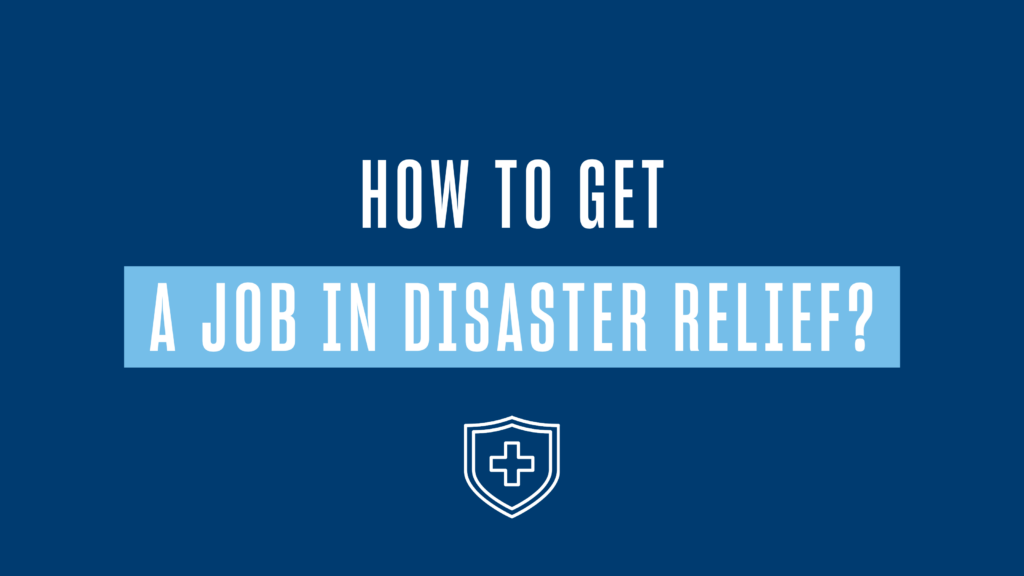The altruistic work of humanitarians knows no bounds, spanning industries and the globe alike. Healthcare workers, water and sanitation specialists, engineers and educators are just a few of the experts needed to make a difference in underprivileged areas.
Regardless of an individual’s specific skills or training, the goal of all humanitarian work is to alleviate suffering. That happens with collaborative efforts between an organization, local communities, governments and other stakeholders. To work meaningfully and effectively, there are particular qualities especially important to cultivate.
Keep reading to learn more, including beneficial training to pursue your quest to help the greater good.
Humanitarian Personality Types
Is there a particular humanitarian personality type? The answer is subjective, but there are certainly some similarities among people who pursue particular positions.
Humanitarians are often social and extroverted, earning roles as coordinators who liaise between headquarters and field operations or translators who spend their time conversing. Being directly involved in face-to-face interactions is a draw for many people, allowing them to experience the progress of work through direct contact.
That’s not to say introverts should steer away from humanitarian efforts. People with INFJ personalities, for instance, are characterized as “dedicated, helpful and principled workers who can be relied on to envision, plan and carry out complex projects for humanitarian causes.”
“Behind-the-scenes” positions are equally essential, and include grant writers, technical experts and supply chain providers. Without the funding, logistics and goods that each role is responsible for, humanitarian efforts would not be possible.
10 Traits of Successful Humanitarians
These traits, paired with cultivated skills, are the basis for a successful career in humanitarian work:
Selflessness
Those who are motivated by change and making a difference in the lives of others are typically steadfast in humanitarian work. Pursuing a greater purpose is a motivation for many to join and continue in the industry.
Compassion
Not only for others but also for oneself. Without the capacity for self-care in the face of potentially traumatic situations, humanitarians are less likely to reach their full potential and more likely to burn out early.
Motivation
Action-minded individuals are more likely to maintain positivity while responding quickly to a humanitarian crisis and when other problems may arise.
Communication
Strong teamwork, connection and organizational skills will contribute to an efficient project.
Insight
A theoretical understanding of the context or implications of global issues is a must to be able to overcome inevitable challenges.
Open-mindedness
An ability to learn and grow in the profession, for example, by learning to speak multiple languages based on where your humanitarian work will take place.
Flexibility
This includes, but is not limited to, the ability to multitask projects, travel and work long hours as needed.
Sensitivity
Cultural differences are often amplified when newcomers to humanitarian work are on-site for the first time. Be respectful of other cultures and have empathy for those you show up to work with.
Leadership
Be able to make difficult decisions with imperfect information under time constraints.
Resourcefulness
Work with what you have to the best of your ability, whether it’s a limited number of resources or team members.
Degrees That Help With Humanitarian Careers
Any number of degrees can compliment a humanitarian career, meaning there is ample opportunity to structure your education in line with your interests.
Begin, for example, with an undergraduate degree in either political science, economics, communications, social justice, international affairs or sustainability — all highly valued for subject-specific matter that translates to humanitarian roles.
A master’s degree in humanitarian action, humanitarian assistance or humanitarian studies provides direct insight into the work that can be expected. These programs are also helpful for those who may have advanced education in a specialty or particular field, such as medicine or law, and want to adapt their skills for humanitarian work.
If you’re looking for an advanced degree with flexibility, consider USD’s 100% online Master of Science in Humanitarian Action program. The intention is for students to cultivate the skills and knowledge necessary to respond to global emergencies.
Instead of focusing on a particular discipline, the subject matter is aimed at preparing students for a variety of humanitarian roles, including many senior-level positions in which an advanced education may be required.
Resources for Humanitarian Careers
While you can find positions via popular employment resources such as LinkedIn and Indeed, there are job sites specifically dedicated to humanitarian-related work, such as:
- ReliefWeb, an information service provided by the United Nations Office for the Coordination of Humanitarian Affairs (OCHA).
- Idealist, a non-profit organization founded in 1995.
- Devex, an independent news organization covering global development and work opportunities.
- Omprakash, a web-based non-profit organization that provides a platform for social change agents to connect.
There is no shortage of domestic and international organizations looking to hire skilled aid workers. Here is a small sampling to explore:
- Relief International is a team of 5,100 people – staff and volunteers – who help people in fragile settings.
- UNICEF caters to disadvantaged children in some of the world’s most challenging areas.
- U.S. Agency for International Development works to advance U.S. national security and demonstrate generosity.
- Médecins Sans Frontières (Doctors Without Borders) is an international medical humanitarian group.
- Care International focuses on ending global poverty and meeting the needs of girls and women around the world.
- International Rescue Committee aids refugees during the process of rebuilding their lives.
- Mercy Corps works to strengthen communities to better cope with crises and ensure a brighter future.
You can learn more about specific positions, including salary information, in this blog post, “Top 30 Humanitarian Careers.”
If you’re interested in cultivating humanitarian skills and beginning an impactful career, use this guide to choose the best opportunities for you. That includes USD’s MSHA program, which can be completed in 20 months.
Not convinced yet? Check out the free eBook, “6 Ways a Master’s Degree Can Benefit Your Humanitarian and International Aid Career.”
![What Makes a Good Humanitarian [+ Important Skills]](https://onlinedegrees.sandiego.edu/wp-content/uploads/2023/12/MSHA_Blog_GoodHumanitarian.png)



